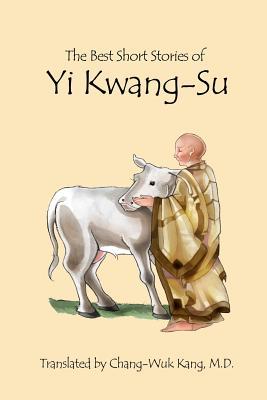The last two short stories in this collection were written during the period from shortly before the end of the WWII to Korean Independence in 1948. The chaotic and uncertain situation of Korea, along with harsh criticism, forced him to remove himself to the countryside and to live on a farm like an ordinary farmer, even maintaining an ox. Around that time he also stayed in a temple by the grace of his cousin, Yi Hak-Su. It was a time of meditation and refuge for him. There he worked on his spiritual journey, although he never wore a monk's robe. He accumulated as many experiences as he could, and then he decided to pursue further education.
Chang-Wuk Kang, M.D. translates these works beautifully, richly capturing the essence of Yi Kwang-Su's style and the culture of Korea. He begins the compilation with a biographical summary of Yi Kwang-Su's life as well as his political influences and literary impact on Korea.
